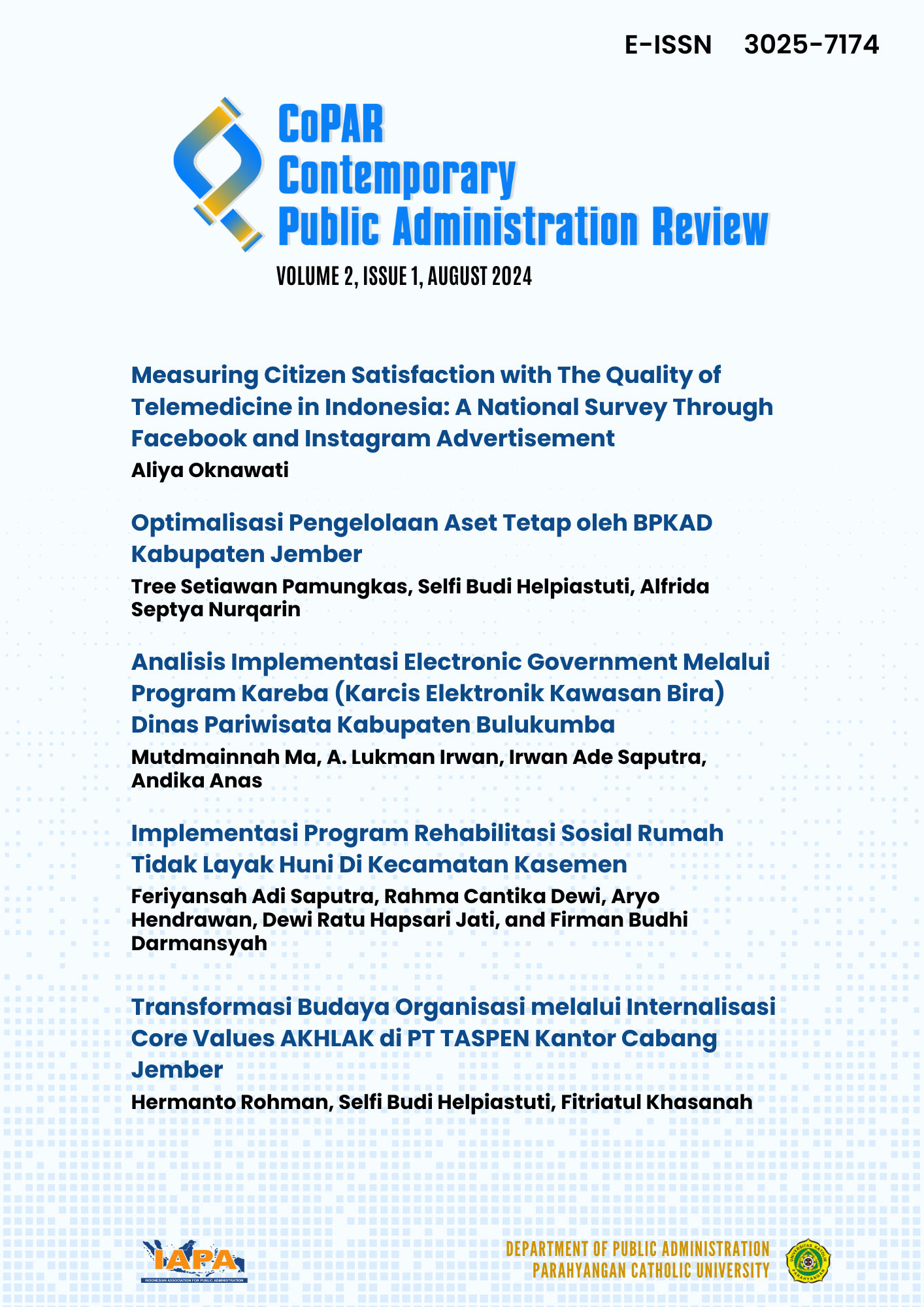Analisis Implementasi Electronic Government Melalui Program KAREBA (Karcis Elektronik Kawasan Bira) Dinas Pariwisata Kabupaten Bulukumba
DOI:
https://doi.org/10.26593/copar.v2i1.8300.33-46Keywords:
e-government, KAREBA, Tourism PolicyAbstract
The utilization of information technology is increasingly being applied in various sectors, including the tourism industry. One form of its application is through e-ticketing at tourist destinations, which is expected to assist in managing the flow of tourists and reducing queues. This study aims to identify the implementation of electronic government through the Bira Area Electronic Ticket (KAREBA) program by the Bulukumba Regency Tourism Office, and the factors that influence it. This study uses a qualitative method, with the research location at the Bulukumba Regency Tourism Office. The data used consists of primary and secondary data, collected through observation, interviews, literature studies, and documentation. Data analysis was carried out using a qualitative approach. The results of the study indicate that the implementation of electronic government through the KAREBA program at the Bulukumba Regency Tourism Office, with the Indrajat (2006) theoretical approach which includes Government to Citizen (G2C), Government to Business (G2B), Government to Government (G2G), and Government to Employees (G2E), has been running quite well. However, there is room for improvement, especially in the use of existing technology and regulations. The factors that influence this implementation consist of hindering factors and supporting factors. Hindering factors include human resources, low technological capabilities of the community, and existing regulations. External factors such as community violations and electricity problems are also hindering factors. Supporting factors include a regular organizational structure, electronic mass media, and revenue transparency through electronic ticket programs.
Downloads
Published
How to Cite
Issue
Section
License
Copyright (c) 2024 Contemporary Public Administration Review

This work is licensed under a Creative Commons Attribution 4.0 International License.





